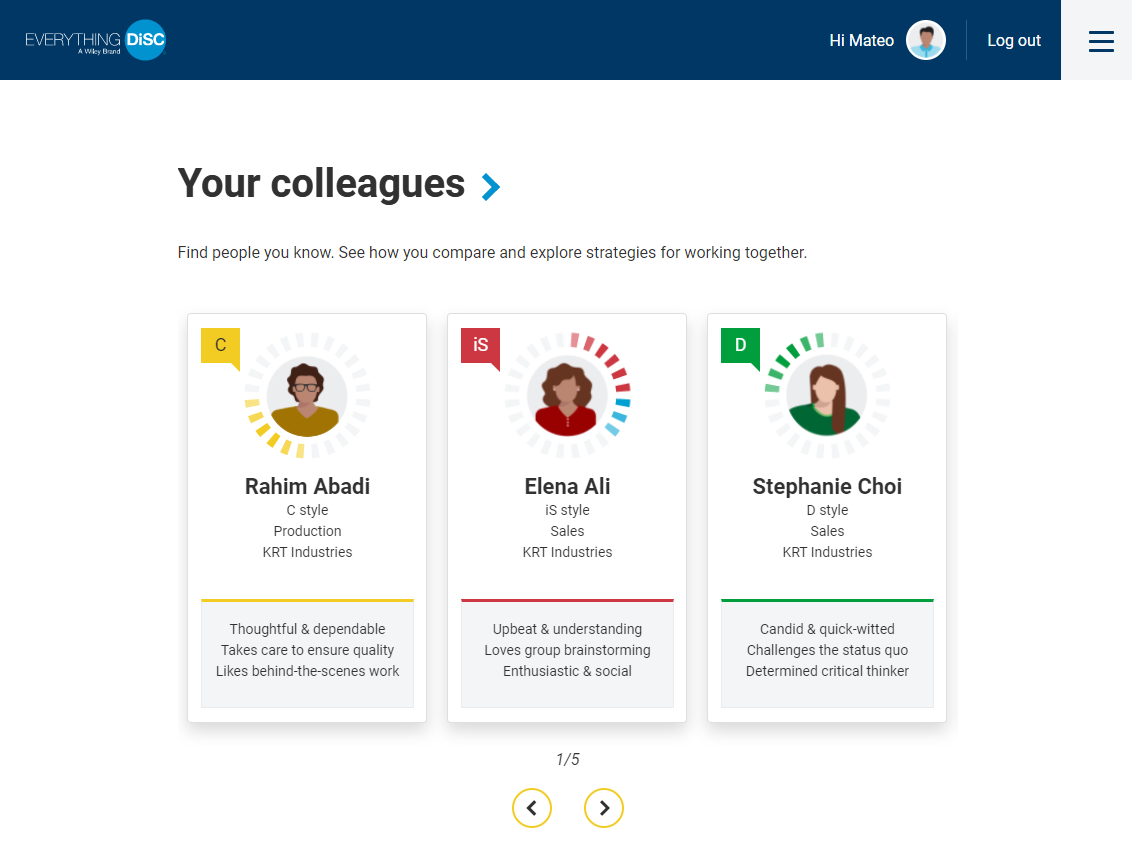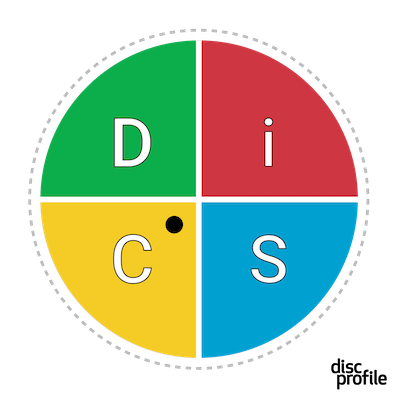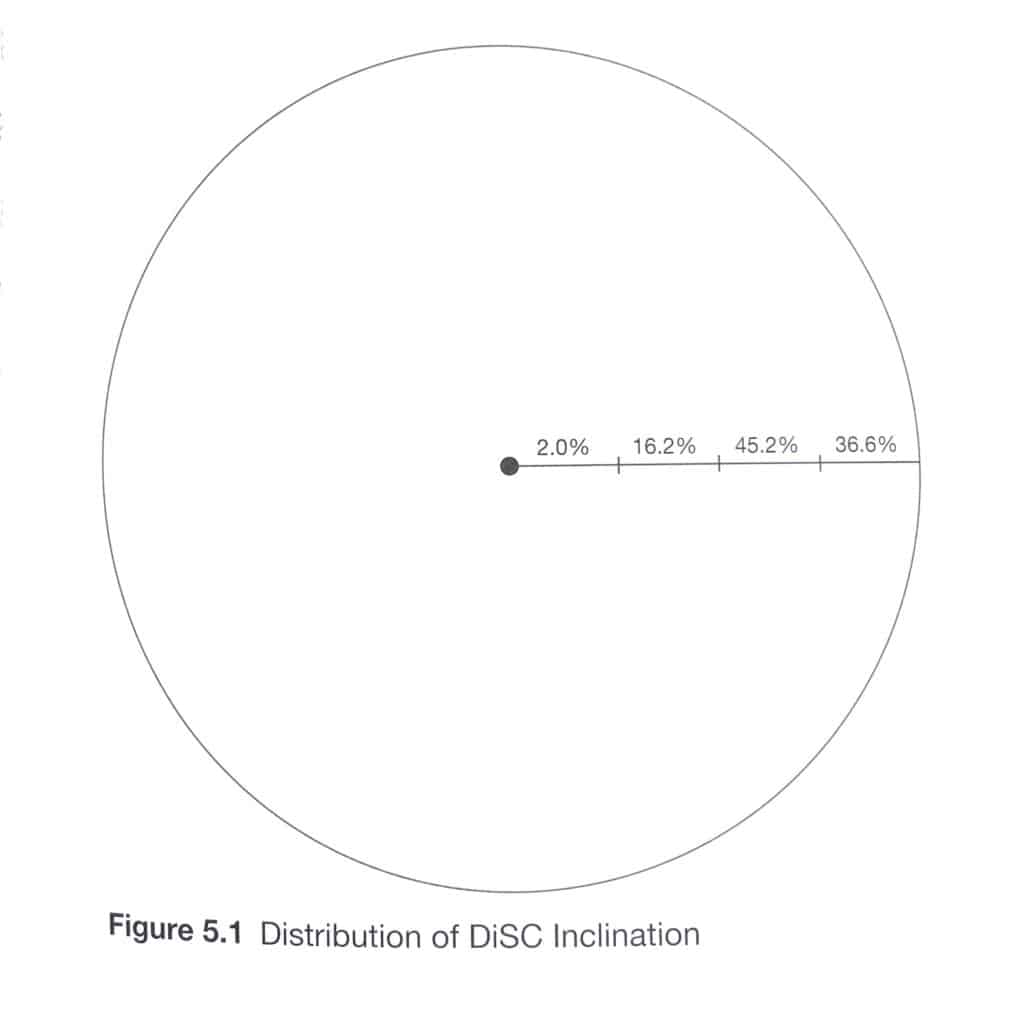FAQs from DiSC learners
There are a few questions you can assume people in your debriefing or trainings will ask. We’re here to help you answer a few of them.
Many questions asked are covered on our How DiSC works and DiSC styles pages (see the FAQs near the bottom of the page). You can also find many answers in the Everything DiSC Manual. Here are a few others.
Can I fail a DiSC® test?
There's no way to fail a DiSC assessment. The learner is the expert on themselves. However, if they attempt to get a specific result, they could invalidate the assessment. And that would certainly make it less useful for their personal development.
Explaining how the assessment will be used will help relieve many learners’ anxiety about taking the assessment.
Doesn’t DiSC pigeon-hole?
Learners may have seen DiSC or another personality assessment being misused. For example, a learner may have observed someone insist on hiring only people who have a high Achiever score in StrengthsFinder, or who thinks that someone with a Myers-Briggs result of INTJ will be difficult to work with, or who believes that only DiSC C styles are capable of being good accountants. These are common examples of misuse of personality/behavioral assessments.
When you explain how the assessment will be used to improve communication, for building stronger team relationships, etc., you should ease the learner’s mind. So will sharing the Cornerstone Principles found in each profile. All DiSC styles are equally valuable and DiSC does not predict success in a job role.
Can others see my profile results?
For most profiles, it’s up to the learner whether they share with others. If you’re using the Administrator Account (EPIC), you’ll have access to view learners’ completed profiles.
If you’re using the Catalyst platform, everyone’s overall results will be visible to anyone else in the same organization who has also taken an assessment on that platform. No one will see anyone else’s complete report. Learners can change their privacy settings so they won't appear in the “Your colleagues” section of the site.

If you’re sharing a Facilitator Report, others will see each learner’s dot-placement tied to the name of each person, but they won’t have visibility to the full profile.
While some people may not want to share their styles, we see that typically people love sharing what they’ve learned about themselves.
If you’re using the MyEverythingDiSC platform, then learners can choose whether they share their results and with whom. (See MyEverythingDiSC Help: My Comparisons for more information.)

How many people have their dot right in the center?
The percentages we have available are for the percentage of individuals that fall in each quarter of inclination. The first quarter – the one closest to the center of the circumplex – is by far the smallest population at only 2.0%. It’s safe to assume, then, that the closer that one’s dot gets to the center, will be even smaller than 2.0%.
Here’s a quick breakdown of those percentages for each quarter:
- First quarter (closest to center of circumplex): 2.0%
- Second quarter (“slightly to moderately inclined”): 16.2%
- Third quarter (“moderately to strongly inclined”): 45.2%
- Fourth quarter (closest to outside of circumplex): 36.6%
See page 97 of the Everything DiSC Manual for more information.

Image from the Everything DiSC Manual, copyright John Wiley & Sons, Inc.
For people who have a dot closer to the center or who do not feel their results fit well, we recommend that you look at the Everything DiSC Supplement for Facilitators report for scores on each of the eight DiSC scales and the priorities subscales.
Could my style be different at home?
Some learners may indicate that their attitudes and tendencies at work are different from their attitudes and tendencies at home. Research indicates that this is not the result of a participant having a different DiSC style at work than at home. Rather, these differences likely result from behaviors that participants have learned to use in particular settings or with particular individuals, or that may not be fully expressed in different settings.
Everything DiSC is designed to be a tool to improve interpersonal workplace relationships and effectiveness. As such, the program is intended to be used in a work setting. With that said, the techniques and strategies provided can be transferred to other settings as long as the learner keeps in mind that some principles may not align with non-work settings. For example, the D-style drive for success and love of competition might not be evident when at home, with specific exceptions such as during a game night with adult family members.
How does my ethnicity, gender, or level of education affect my DiSC style?
There are very few scoring differences based on demographics.
From the Everything DiSC Manual
Most common DiSC style
“The standardization of the eight scales ensured that the assignment of DiSC styles was roughly equal across the twelve styles. The Everything DiSC assessment has been translated into other languages where local norm groups are used to establish the optimal items and norms for each scale.”
Gender
Gender “differences are generally small. The largest differences are seen on the iS scale, in which gender accounted for 3.7% of scale variance. Women tended to score higher on the i, iS, S, and SC scales, and men tended to score higher on the D, Di, C, and CD scales.”
Heritage
“These differences are generally small. The largest differences are seen on the CD scale, in which heritage accounted for 2.5% of scale variance.”
Education
“These differences are generally very small. The largest differences are seen on the Di scale, in which education accounted for .7% of scale variance.”
Ethnicity
“Practically speaking, knowing someone’s ethnic background will tell a practitioner almost nothing about that person’s DiSC style.”
What is the ideal DiSC type?
There is no ideal DiSC style or type. Each of us has our strengths and our challenges. DiSC doesn’t tell us if we’re skilled at various behaviors, but rather how much effort it might take us to enact them. Each style can be used in a positive way or overused to our detriment. DiSC reminds us that we’re all a blend of all styles and capable of stretching into other styles as needed.
Should teams have a mix of all styles?
A team can be successful with or without a mix of DiSC styles. What’s more important than mix is awareness of the team’s strengths and challenges. A well-rounded team will work to overcome their challenges rather than focus only on their strengths.
How can I find my DiSC profile again?
If someone has lost their profile and you can’t easily find it, have them return to the email they first received from you. The same link they followed to take the assessment will help them locate their completed profile. If they no longer have the email with the access code, they will need to contact us. If their assessment was purchased from Discprofile.com, we’ll locate it for them.
If the learner has signed into either Catalyst or MyEverythingDiSC, they will be able to find their reports there. For MyEverythingDiSC, they might have to add their profile. They’ll need the code from their initial email or from the bottom right corner of their printed (or PDF) profile.
Can I buy a profile for someone else?
Some learners will see how beneficial DiSC can be and want to buy a profile for a loved one or another colleague. Give them a link to this website. Let them know that when they buy an online profile they will receive an email with a link to the assessment. They can forward that email to their friend, family member, or colleague. That person will be able to set up a secure account, take the assessment, and view their results.

